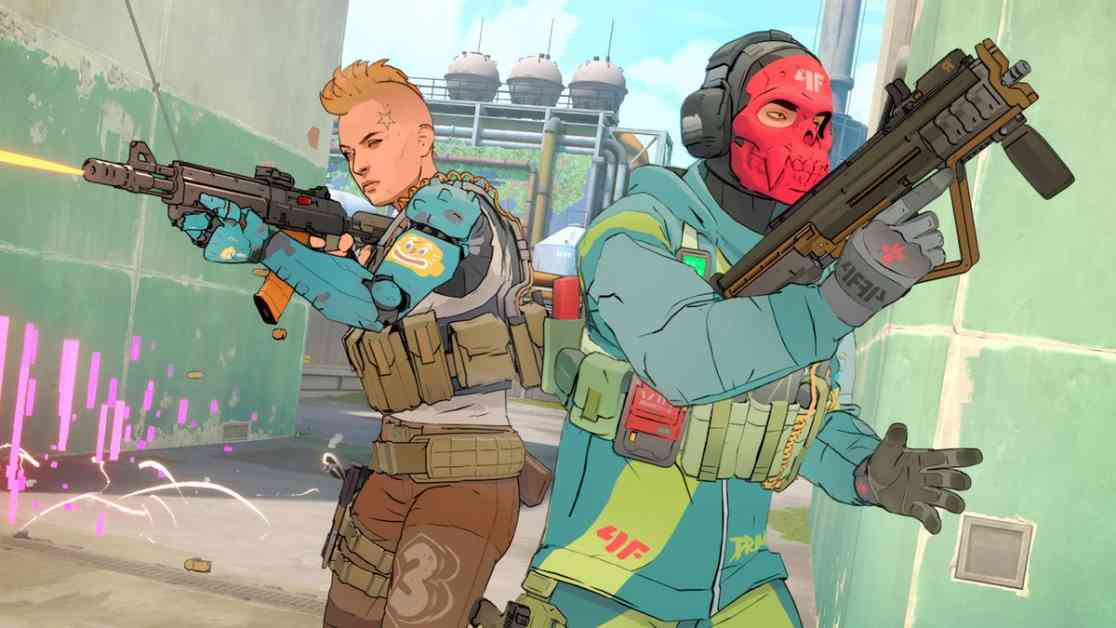Mountaintop Studios has finally released its highly anticipated tactical FPS game, Spectre Divide, to the public after generating significant buzz during its closed and open beta phases. As a journalist with 41 minutes of gameplay under my belt, I can attest to the excitement surrounding the game. However, my initial experience with Spectre Divide has been marred by matchmaking issues that have prevented me from actually playing a match. Despite a sizable player base of around 30,000 individuals, I find myself stuck in endless queues that I cannot cancel without closing the game.
Mountaintop Studios has acknowledged the matchmaking problems and is actively working on a fix for them. In a recent update on the official Discord channel, players were advised to restart their client if they are stuck in a queue for longer than 11 minutes. While waiting for the matchmaking issues to be resolved, I took a look at the in-game store and was met with a familiar sight—a $90 skin bundle prominently displayed above a $45 bundle. The Cry Kinesis bundle, priced at $90, features sci-fi themed skins with blue “cryo” effects for four popular guns, along with a glowing blue handaxe as a knife replacement. While these skins may look appealing, their exorbitant prices have drawn criticism from the Spectre Divide community.
Many players have expressed disappointment over the steep pricing of the in-game cosmetics, with some feeling that the skins are too basic for the high cost. User Dovawin on the Spectre Divide subreddit remarked, “I’m one of those losers that buys skins right away but… these are so basic I’m not even considering buying them.” Another user, JasoniPepperoni, echoed similar sentiments, stating, “I genuinely want to support the devs by purchasing something in game, but I’m definitely not dropping $100 on some basic looking skins.” The pricing strategy employed by Mountaintop Studios mirrors that of other popular FPS games like Valorant, where expensive skins have become the norm.
One key difference between Spectre Divide and other games like Valorant is the inability to purchase individual skins from a bundle at a lower price. Currently, Spectre Divide only offers full bundle purchases, leaving players with no option to select specific items at a reduced cost. This lack of flexibility in purchasing options has further fueled discontent among the player base. The trend of high-priced cosmetics in free-to-play games is not unique to Spectre Divide, as other titles have faced similar backlash for their monetization strategies.
Transitioning between different gaming communities can sometimes feel like entering a new world with unfamiliar customs. While the pricing of skins in Spectre Divide may seem excessive to some players, it aligns with industry standards set by established games like Valorant. Mountaintop Studios justifies its pricing by emphasizing the game’s value proposition and the absence of pay-to-win mechanics. Game director Lee Horn asserts that players can compete at the highest level without spending money, as the focus is on delivering engaging content that players will want to support.
Despite the studio’s efforts to position Spectre Divide as a fair and player-friendly game, criticisms regarding its monetization practices persist. As a new entrant in the FPS genre, Mountaintop Studios faces the challenge of balancing player expectations with the need to generate revenue. The ongoing debate surrounding in-game purchases highlights the delicate balance between satisfying player demands and sustaining the financial viability of free-to-play games.
In conclusion, Spectre Divide’s launch has been overshadowed by matchmaking issues and controversial pricing of in-game cosmetics. While the game shows promise in terms of gameplay and features, its monetization strategy has raised concerns among players. As Mountaintop Studios continues to address player feedback and improve the gaming experience, the success of Spectre Divide will ultimately depend on its ability to strike a balance between player satisfaction and financial sustainability.




















